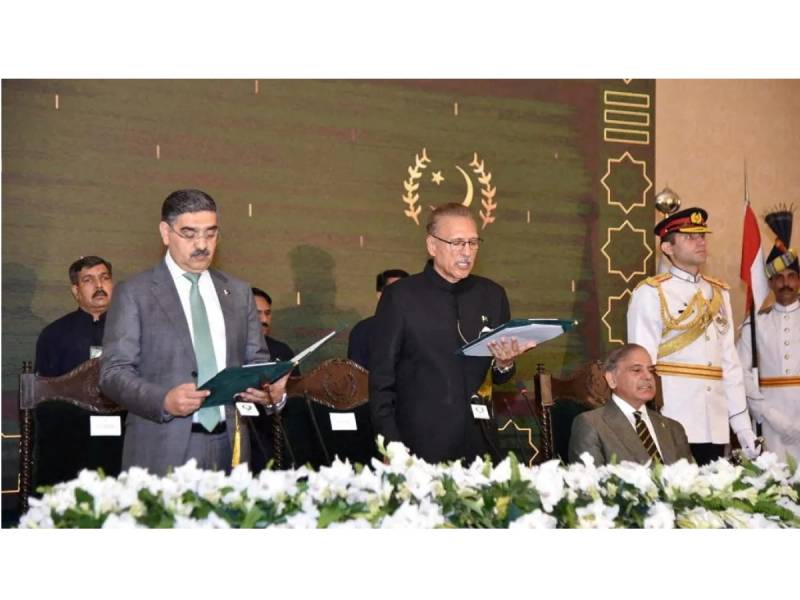
According to the 1973 constitution, the role and responsibility of the caretaker government is very limited and precise. The caretakers are not permitted to make any major changes in national policy or even appoint or transfer holders of key public offices or even launch new initiatives. The role and responsibility of the caretaker government is severely restricted to the holding of fair and free, and transparent national elections. They are supposed to hold office for a period of 60-90 days, plan, organise and conduct elections and then hand over the reins of power to the new elected majority party. For the first time in our political history, elections and the role of the caretaker government have become another controversial issue.
Today we are being told that elections can only be held after redrawing the constituency boundaries based on the census conducted recently, and that elections will now be delayed for at least four months and the caretaker government will continue to hold office during the extended period before the new general elections in the country. Today the nation is faced with a grave danger of economic collapse and any extension in the time for the caretaker government could spell disaster – or the country could default, resulting in immense misery for the country. So, what role should be played by the caretakers during the next 90 days of their rule?
Due to the extraordinary circumstances in the period that the caretaker government has taken charge, doing nothing is not an option. We are under a chronic threat of default or even an economic collapse of our system and the caretakers just cannot remain inactive. They have to perform their national duty to save the country from economic demise during the next six months at least.
The number one priority on their list should be complete and total implementation of the IMF agreement signed by the previous government The standby agreement agreed to by the previous regime in July includes checking monetary expansion, increasing tax revenues, curbing government expenditure, denationalization of state-owned business entities and the colossal circular debt. Performing their national duty will require a lot of time and effort and mostly political wisdom. The caretaker group is composed of some well trained and experienced technocrats, so levying higher taxes will not be difficult.
Some tough decisions and difficult measures are necessary, and ought not to be difficult for the caretakers, as they are not aspiring for political office in the forthcoming elections and their popularity does not matter. When it comes to negotiations with the IMF, we must remember that the standby agreement (SBA) is an interim agreement put in place as Pakistan was unable to fulfil the conditions agreed during the ongoing Extended Fund Facility (EFF). The SBA will run its course in April 2024 and it is important that the Pakistan get itself back onto the EFF. The government should negotiate with the IMF, as well as with other multilateral and bilateral donors, on ongoing and future support.
The curse for economic development in Pakistan has always been slow implementation of development projects and this achieved alarming proportions during the government of the PTI. Especially projects under CPEC were neglected, leading to some annoyance by the Chinese investors. Microeconomic management of projects at the federal and provincial levels should be a top priority of the government.
Almost every year, development objectives are not achieved and a lot of funds allocated for the year are lapsed due to non-completion of projects. Donors are also annoyed because of repeated delays and unnecessary extensions in time. Program implementation must be carefully and closely monitored and all possible care taken to avoid any delays or extensions in time. Projects facing inordinate delays should be cancelled and people responsible taken to task and the technocrats in the Government must ensure timely completion and smooth running of all development projects. Top priority should also be to eliminate corruption from development schemes by strict command and control, streamlined bureaucratic procedures and placing the right person in the right job without any political considerations.
Pakistan appears to be unable to manage its ongoing crisis – mostly due to poor planning and lack of strategic foresight. And the result is chaos and instability in society. After the departure of the PDM coalition, we must decide why this poor nation is in a state of economic and governance crisis and there appears no light at the end of the tunnel.
The political elite appears to be lacking in political will, strategic acumen and the basic will to turn around the economy and bring about political stability and balance. Intelligent and strategic planning requires prudence, wisdom and foresight to ensure defense and security of the nation. For its tenure, the caretaker government’s focus should be on the augmentation of the economy, education, eradication of terrorism, deradicalisation of youth and a firm watch on the religious seminaries preaching extremism and hatred.
An alarming recent atrocity in Jaranwala was carried out on the 16th of August, when the Christian community faced the wrath of religious extremists and witnessed the torching of places of worship and residential buildings. This incident highlights the extent of intolerance and bigotry in our society. The one great priority of the caretakers should be to arrest and punish the main culprits of this atrocity.
Indifference and apathy of the rulers is also evident over the abnormal increase in the prices of fuel, gas and electricity including the crisis in sugar and flour engulfing the country and the utter helplessness of the government to do anything about it or to even provide the much needed relief to the suffering masses.
The caretaker government needs to hold firm until an elected political government can begin to address all these issues.

